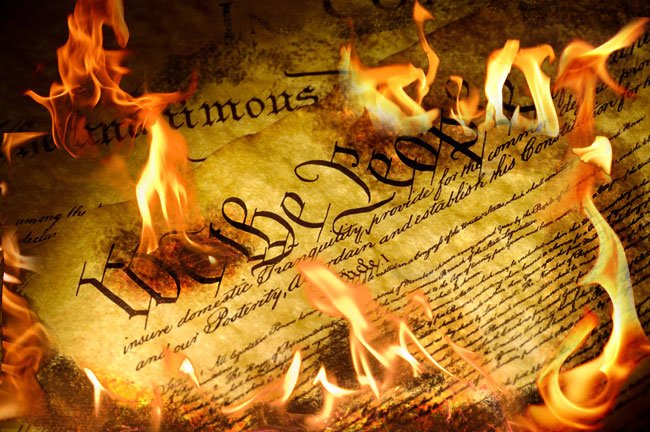
In some states, including my own (Delaware), there is talk among legislators and governors of stopping the next mass shooting before it happens. How? By determining those most likely to commit the crime.
“This package of gun safety measures is directed at individuals who might impose violence with a gun,” said the Governor of Delaware last January in defense of new gun restrictions. In other words: If the government deems you someone who might be a criminal, then you will be given the same status as somebody who already is.
Given how brilliant federal and state governments have shown themselves to be at socializing medicine via ObamaCare, we can surely trust them to know who among us will be a criminal tomorrow, correct? Who needs psychics? We’ve got politicians, and they’re even smarter and wiser.
It seems absurd. But things are reaching such an irrational state in today’s government that we must ask a question that to any rational person seems ludicrous: Does your alleged potential for committing a crime in the future make you a criminal today?
A reader asks me to clear up something I wrote in a previous article about the injustice of incarcerating people based on nothing more than the potential of a crime. He writes:
“The first thing that comes to mind is drug use, for example drunk driving or public drunkenness. The next thing that comes to mind is children who seem to have more potential for crimes than adults.
This is where it is not clear to me and I start running into a bunch of contradictions.
The solution to the above is to cut privileges or rights based on your condition, the same way that a drunk is prohibited from driving, a child is prohibited from driving, a crazy person is prohibited from having a gun, just anyone not being able to smoke marijuana — period. In effect you have made the potential for wrongdoing a crime.
Does that not leave the door open for making unjust laws that attack potentials, or do laws require a clear and logical connection that state X with action Y creates so much potential for Z that law against Y is justified? But still, too much potential is still a potential l. So I am confused.”
Let’s start with the example of drug or alcohol abuse.
Does the government hire specialists to assess people deemed “at risk” for drug or alcohol abuse, subsequently restricting their right to own and drive a car on the highways?
Absolutely not. Nor would the government do so, at least not in a free society.
For one thing, in a completely free society, roads would be privately owned. The responsibility of ownership, i.e., liability, etc. would require owners of roads and highways to keep unsafe people off their roads.
At the same time, highway owners, driven by profit, would want as many toll-paying drivers on the road as possible. Rationality would not always be guaranteed, but it would be the constant and compelling incentive in such a private system.
Of course, we do not, and will not in the foreseeable future, ever have a private system of roads. The government owns virtually all of the highways. In a sense, this gives the government the responsibility for making sure that the roads are as safe as possible. Governments set and enforce speed limits, and assertively enforce laws to punish drunk drivers, while attempting to make the roads as safe as possible for potential victims of drunk drivers or other substance impaired drivers.
However, these reasonable restrictions in no way include punishing people for potential crimes. The police don’t pull you over because you look like a potential alcoholic, or because some social worker or state employed psychologist made you take a test that indicates you someday will be a danger on the road. The only way to have your driving license restricted or ultimately denied is by committing and being convicted of actual crimes on the highway.
The same applies to children. Children are not adults. They do not enjoy equal rights under the law with adults. A child may not purchase a car, buy a home, or do other things that adults routinely have the right to do. But children do have individual rights. Primarily, individual rights refer to the child’s right to not be physically harmed, sexually abused or objectively neglected under objective laws passed by mostly state and local governmental bodies.
Your question implies that we might have knowledge of how to prevent crimes by determining facts about children which make them likely to commit crimes in the future. But this cannot be done. Even if psychology or related fields reached such an advanced state, free will would always exist. Even if you knew all the variables predictive of a three-year-old or a thirteen-year-old later on turning into a violent or white collar criminal, that young person would still possess free will.
In short: You do not punish or restrain someone until or unless they do something, or at least have made a credible threat of their intention to do something.
Potential criminals-in-the-making do sometimes settle down and reform once they’re adults. Similarly, well-behaved children sometimes do engage in criminal behavior later on in life. There is no intellectual basis, much less a moral or political one, for holding children (or their parents) responsible for “potential future crimes,” and there never will be, no matter how far the sciences of psychology, neurology and medicine may advance.
